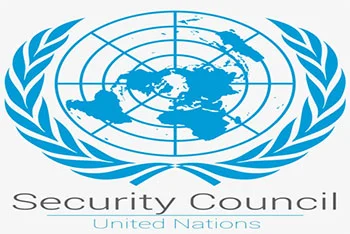Date : 13/10/2023
Relevance – GS Paper 2 – International Relations
Keywords – UN, UNSC, Veto Power, New York
Context
The longstanding debate on fundamental reforms at the United Nations (UN) has resurfaced once again, more than thirty years after it first began.
United Nations Security Council (UNSC)
The United Nations Security Council (UNSC) is one of the six main organs of the UN, dedicated to maintaining global peace and security. Its inaugural session took place on January 17, 1946, in Westminster, London, and its headquarters are situated in New York City. The Council consists of 15 members, including permanent members with veto power such as China, France, Russia, the United Kingdom, and the United States. Notably, over 50 UN Member States have never been part of the Security Council.
UNSC elections occur annually in the General Assembly, where five non-permanent members are elected for a two-year term out of a total of 10. These non-permanent seats are distributed regionally: five for African and Asian States, one for Eastern European States, two for Latin American and Caribbean States, and two for Western European and other States. To secure a seat on the Council, candidate countries must obtain a two-thirds majority of votes from the Member States present and voting in the Assembly.
Traditionally, UNSC elections have been held in the General Assembly hall, where each of the 193 member states casts its vote through a secret ballot.
Key Aspects of United Nations Security Council (UNSC) Reform
The reform of the United Nations Security Council (UNSC) addresses five pivotal areas:
- Membership Categories
- Veto Power of Permanent Members
- Regional Representation
- Size and Operations of an Expanded Council
- Security Council-General Assembly Relations
The Urgency for United Nations Reforms
Inadequate Council Representation:
- When the UN was established in 1945, the Security Council included 11 members out of 51 UN countries, representing 22% of the member states. Presently, with 193 UN member-states, only 15 Council members exist, accounting for less than 8%. Consequently, a significant number of nations do not feel fairly represented within the Council.
Persisting Privilege and Imbalanced Power:
- The current privilege enjoyed by the five permanent members—China, France, Russia, the United Kingdom, and the United States—based on historical precedence is politically untenable. Additionally, the Council's composition disproportionately favors the balance of power from the past. Europe, comprising just 5% of the global population, controls 33% of Council seats, not including Russia, another European power.
Financial Disparities and Unchecked Conflicts:
- Some countries contribute more financially to the UN than four of the five permanent members. For instance, Japan and Germany have consistently ranked as the second and third largest UN budget contributors. Moreover, conflicts in regions like Sudan, Syria, and Myanmar often remain unaddressed, allowing certain countries and non-state actors to exploit these situations economically.
Failure in Basic Functions:
- The Security Council struggles to fulfill its fundamental role, especially when a permanent member attacks its neighbor. Although the Council should act against such aggression, the veto power impedes decisive action. For instance, when Russia attacked Ukraine in February 2022, its veto power obstructed UNSC resolutions addressing the situation.
Denied Opportunities for Contributions and Representation:
- Prominent nations like India, with significant population, economic influence, and substantial contributions to the UN, find their opportunities curtailed. Despite their active roles in shaping global affairs, these states remain underrepresented, highlighting the pressing need for reforms within the UN framework.
Challenges Faced in United Nations Reforms
Differing Perceptions on Reforms:
The states advocating for UN reforms are primarily those who believe they deserve a spot on the Security Council. This perspective stems from the desire for recognition equal to that of the existing permanent members. However, a significant portion of UN member states, especially smaller nations constituting over half of the membership, accept their limited roles and are content with the occasional opportunity to compete for a two-year non-permanent Council seat.
Formidable Amendment Hurdles:
One major challenge lies in amending the UN Charter, a process marked by high barriers. To amend the Charter, a two-thirds majority among the overall membership, equivalent to 129 out of 193 states in the General Assembly, is necessary. Furthermore, any amendment must be ratified by two-thirds of the member states. This daunting requirement means that a proposal could only succeed if it manages to secure support from two-thirds of UN member states while avoiding opposition from any of the existing permanent five members or even influential figures like a powerful U.S. Senator, who could block ratification in Washington.
Way forward
The world has been stuck in a never-ending debate for many years, especially within the Security Council. This deadlock means no progress is being made. The United Nations (UN) is the only global organization where all countries come together to talk and solve problems. It's like a big meeting place for the whole world. It's incredibly important that we don't ignore the UN or let it become useless and unimportant. The UN helps countries work together, solve conflicts, and keep the peace worldwide. We need to find a way to make sure the Security Council, which is a part of the UN, can make decisions and take action. This is crucial for the UN to keep being effective and helpful in dealing with the challenges our world faces.
Probable Questions for UPSC Mains Exam
- Discuss the impact of the existing UNSC veto power system on the Council's ability to maintain global peace. What strategies can enhance the UNSC's effectiveness in addressing these challenges today? (10 marks, 150 words)
- Examine the hurdles in amending the UN Charter for UNSC reforms. Analyze diplomatic approaches to foster consensus among member states for meaningful reforms within the UNSC framework. (15 marks, 250 words)
Source – The Hindu







